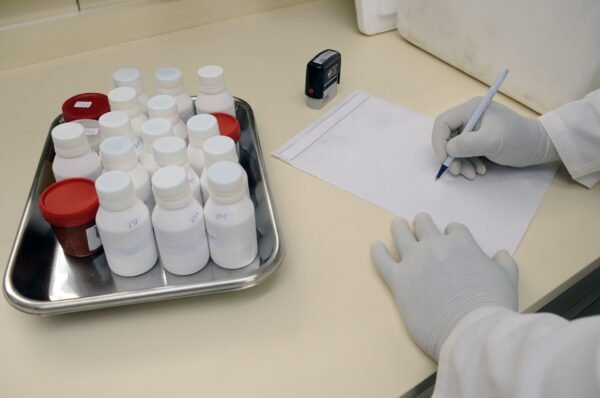ALS is a neurological condition that limits patients’ voluntary muscle movements. ALS disease treatment research is underway, and progress is promising.
Amyotrophic lateral sclerosis (ALS), also known as Lou Gehrig’s disease, is a progressive neurological condition that affects the nerve cells in charge of controlling voluntary muscles. To develop effective ALS treatments, a lot of research has been done throughout the years. In this article, we’ll talk about the most recent discoveries and developments in the treatment for ALS.
Overview of the Latest Research on ALS
Our understanding of amyotrophic lateral sclerosis has considerably improved as a result of recent research that has revealed possible therapeutic targets. Numerous important pathways involved in the onset and course of the disease, potential new medicines, and methods for treatment including promising drugs, as well as emerging therapies, have been found. Although extensive research is underway, current treatment is already encouraging.
Promising New Drugs for ALS Treatment
Ongoing ALS disease treatment research holds promise for the development of new drugs with the potential to significantly improve outcomes for individuals affected by the disease. Researchers are actively investigating various approaches, such as:
- gene therapy;
- stem cell transplantation;
- identification of specific molecular targets.
The goal is to develop effective therapies that can slow or stop the progression of ALS, enhance motor function, and, ultimately, improve the patient’s quality of life.

- Edaravone (Radicava)
The U.S. Food and Drug Administration (FDA) authorized Edaravone (Radicava) in 2017 as the first novel ALS treatment medication [doi: 10.3390/ph14010029]. Antioxidant edaravone works to lessen oxidative stress and delay the progression of the disease. Clinical trials have demonstrated that it can offer small advantages, especially for those with ALS who are still in the early stages.
- Masitinib
Masitinib, an oral tyrosine kinase inhibitor, targets microglia and mast cells, which are thought to be responsible for ALS-related neuroinflammation and neurodegeneration [doi: 10.1016/j.biopha.2023.114378]. Masitinib has been shown to slow down the progression of disease in ALS patients.
- Riluzole
Riluzole is the first FDA-approved drug for amyotrophic lateral sclerosis [doi: 10.3390/jpm12101601]. It works by reducing glutamate release in the synaptic cleft by blocking sodium channels on presynaptic neurons. This mechanism helps mitigate excitotoxicity. Research studies have shown that Riluzole leads to positive results for patients in the treatment of ALS.
Clinical Trials for Advanced ALS Treatment
Clinical trials are essential for testing new treatments and determining their efficacy and safety. Numerous clinical trials are currently being conducted to look into the possibility of ground-breaking treatments for ALS [doi: /10.1016/j.brainresbull.2023.01.008]. Some of these trials include:
- NeuroNata-R – A phase-1 clinical study with seven ALS patients revealed the safety of two intrathecal injections of autologous bone marrow-derived mesenchymal stem cells [doi: 10.5966/sctm.2014-0212]. The study revealed that NeuroNata-R effectively delayed the progression of ALS accordingly measured by the ALS Functional Rating Scale-Revised (ALSFRS-R).
- The Neural Stem Cell Transplantation Trial – a clinical trial that tested the safety and efficacy of neural progenitor cells in the brains of people with ALS and the change in patients’ quality of life [doi: 10.1186/s12967-014-0371-2]. The results revealed that there was no increase in the progression of the disease, with two patients even showing improvement.
Gene Therapy for ALS Treatment

By delivering therapeutic genes to target cells and altering the course of the disease, gene therapy shows potential as a treatment for ALS. Despite the fact that ALS gene therapy techniques are still in their infancy, significant progress has been made:
- Antisense oligonucleotides (ASOs) – Pre-clinical studies of ASO-based therapies targeting familial ALS caused by SOD1 and C9orf72 mutations have shown optimistic results. These medicines are making their way through the clinical pipeline, providing hope to people affected by these specific genetic variants of ALS. These ASO-based medicines have the potential to address the underlying causes of familial ALS [doi: 10.1097/WCO.0000000000000594].
- CRISPR-Cas9 – The gene editing system known as CRISPR-Cas9 allows for precise and targeted alterations to the genetic code. Although there are currently no approved clinical uses for this system, researchers are investigating its potential for repairing genetic abnormalities linked to ALS [doi: 10.3390/ijms21113801].
Future Directions for ALS Treatment Research
Numerous intriguing areas are being investigated in the future for ALS therapeutic research. One goal is to create treatments that go after ALS’s underlying genetic origins. In addition, investigating the involvement of immunological dysfunction and neuroinflammation in amyotrophic lateral sclerosis is an approach with the goal of creating immunomodulatory drugs.
To encourage tissue repair and regeneration, stem cell therapies such as transplantation and cellular reprogramming are also being investigated. Identifying additional targets implicated in the pathophysiology of the disease may enable the creation of innovative therapeutics. These research directions have the potential to advance ALS treatment options and improve patients’ quality of life.
Exploring promising avenues in ALS therapeutic research, mesenchymal stem cell therapy emerges as a compelling approach with potential implications for treatment advancement. Stem cell therapy such as stem cell therapy – AvantBlue Aesthetics holds promise in addressing the underlying mechanisms of ALS, offering avenues for tissue repair and regeneration within the affected neural networks. By harnessing the regenerative properties of mesenchymal stem cells, researchers aim to foster neural repair and counteract the degenerative processes characteristic of amyotrophic lateral sclerosis.
Conclusion
New discoveries in the field of ALS research give promise for more effective therapies. We are learning more about amyotrophic lateral sclerosis and its potential treatment thanks to new drug development, continuing clinical studies, and the investigation of gene therapy methods. Although there are still difficulties, ALS disease treatment research provides hope and may one day lead to effective treatments.
Biopharmaceutical companies who are planning to manufacture cell and gene treatments such as stem cell therapy may consider hiring a Cell and Gene therapy Consultation company to guide them with FDA regulations.
